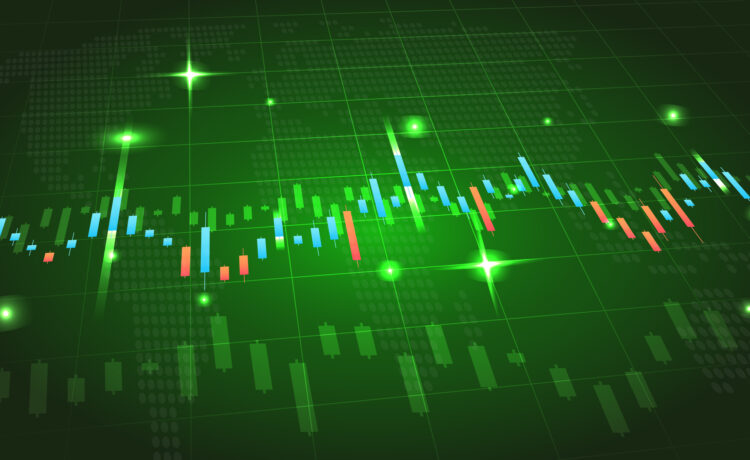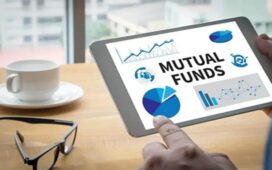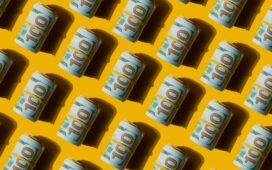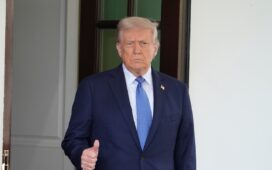Is Washington talking to Beijing? Will President Xi take President Trump’s calls? How long will tariffs come between the U.S. and China? Such are the questions shaping day-to-day price action in global financial markets.
It worked out for another generally positive trading session, the fourth straight to end the week – even though, along with hard data incoming from all over the world, consumer sentiment continues to reflect a rising toll of uncertainty.
During an April 22 interview with Time magazine published Friday morning, Trump said he expects to conclude negotiations with U.S. trade partners on lower tariffs “over the next three to four weeks.”
Sign up for Kiplinger’s Free E-Newsletters
Profit and prosper with the best of expert advice on investing, taxes, retirement, personal finance and more – straight to your e-mail.
Profit and prosper with the best of expert advice – straight to your e-mail.
The president added, “I’ll be finished. Now, some countries may come back and ask for an adjustment, and I’ll consider that, but I’ll basically be, with great knowledge, setting – ready.”
President Donald Trump told Time magazine he won’t call President Xi Jinping to talk about tariffs unless Xi calls him first. Trump also told Time that Xi has indeed called: “He’s called. And I don’t think that’s a sign of weakness on his behalf.”
Bloomberg reported yesterday that “Trump has tried to get Xi on the phone a number of times” since January 20. But Xi is not taking his calls. “Beijing wants to see a number of steps from Washington before it will agree to trade negotiations,” Bloomberg explains, “including showing more respect and naming a point person for the dialogue.”
But, as Trump told Time, “We’re meeting with China. We’re doing fine with everybody.”
And, as Bloomberg also reported, “China’s government is considering suspending its 125% tariff on some U.S. imports, including medical equipment and industrial chemicals like ethane,” as well as plane leases.
Potential exemptions “mirror similar moves on the part of the U.S.,” the article indicated. The Trump administration has exempted electronics from its 145% tariff on Chinese imports.
Goldman Sachs assessed tariff-induced recession risk in a recent research note. “It’s not the size of the [trade] policy shift,” writes Paul Krugman, a professor at City University of New York’s Graduate Center and a Nobel Prize in Economic Sciences winner, “but the uncertainty around it that could cause a recession.”
As Krugman argues, “At this point, policy reversals may actually worsen the situation because they would enhance uncertainty.”
Goldman Sachs Chief Economist Jan Hatzius doesn’t disagree “that the uncertainty effect could inflict ongoing damage to the economy. But I do think a pullback on tariff policy would nevertheless help stabilize conditions in the near term.”
Meanwhile, Oren Cass, the founder and chief economist of American Compass, is more sanguine: “There is no reason the trade policies the Administration is pursuing would need to cause a recession. On the contrary, they should produce a great deal of investment and, more broadly, better economic outcomes for America.”
The Cboe Volatility Index (VIX) ended the week at 25.40, having peaked at 35.75 on Monday. The yield on the 10-year U.S. Treasury note settled at 4.258%, down from 4.333% a week ago. The U.S. Dollar Index (DXY) inched up to 99.52 but is down from a January 13 52-week high of 110.18.
At the closing bell, the blue-chip Dow Jones Industrial Average had risen 0.1% to 40,113, the broad-based S&P 500 was up 0.7% at 5,525, and the tech-heavy Nasdaq Composite had added 1.3% to 17,382.
Sentiment hits the fan
The final print on the University of Michigan Index of Consumer Sentiment for April was 52.2, up from a preliminary read of 50.8 but down from 57.0 in March.
Said survey director Joanne Hsu, “Consumers perceived risks to multiple aspects of the economy, in large part due to ongoing uncertainty around trade policy and the potential for a resurgence of inflation looming ahead.” Hsu added that “labor market expectations remained bleak.”
According to Comerica Bank Chief Economist Bill Adams, “Consumers are freaked out about tariffs, the stock market, inflation, and recession fears.” Adams notes that the current conditions component of the sentiment index declined to its lowest level since December 2022.
Still, the economist notes, “the deterioration in economic expectations is much worse.” Adams cites consumers’ expectations for unemployment getting “back to where they were in mid-2009, amid the Great Recession.”
Further, Adams points out, “consumers’ expectations for their own financial situation in twelve months plunged to the worst EVER, in survey data going back to 1978.”
Survey results show that year-ahead inflation expectations are the highest they’ve been since the early 1980s, and five-to-10-year-ahead expectations are at levels not seen since the early 1990s.
“Financial markets were encouraged this week to see the administration eyeing offramps to the trade conflict,” Adams concludes. “But it’s hard to see that sentiment holding up unless policies change soon.
“Without those changes, the U.S. economy is pointed in a dangerous direction. The further the economy goes down this path, the higher the risk of a recession.”
TSLA gets a boost
Tesla (TSLA, +9.8%) extended a rally sparked by CEO Elon Musk setting a countdown on his time in Washington, D.C., as the primary actor at the Department of Government Efficiency (DOGE).
Today’s upside was powered by a favorable announcement from the Department of Transportation about a new regulatory framework for self-driving cars.
“This administration understands that we’re in a race with China to out-innovate, and the stakes couldn’t be higher,” said Transportation Secretary Sean Duffy.
Duffy noted that the DOT’s new framework “will slash red tape and move us closer to a single national standard that spurs innovation and prioritizes safety.”
GOOGL gets up, too
Alphabet (GOOGL, +1.7%) reported after the closing bell on Thursday that earnings grew by 49% to $2.81 per share, as revenue was up 12% to $90.2 billion during the first quarter.
Management reported double-digit top-line growth for its Google Search, YouTube ads, Google subscriptions and Google Cloud units.
The Google parent also raised its dividend by 5% and announced a $70 billion stock buyback program.
And GOOGL is probably enjoying similar upward pressures as TSLA today.
CEO Sundar Pichai said Alphabet’s Waymo robotaxi service is now serving a quarter of a million passengers per week. That’s a year-over-year increase of approximately five times – though GOOGL management is still working out a business model.





